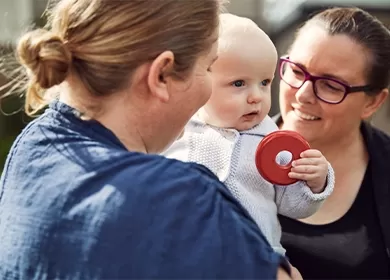Breakthroughs in blood research
What if menstrual blood could unlock new tests for endometriosis? What if donated blood could help grow new skin? These aren’t sci-fi ideas, they’re being studied right now. Let’s dive into three big projects — including two from Lifeblood — reshaping the world.
Period Blood: A Diagnostic Goldmine
Yep, you read that right. Researchers are now exploring how menstrual blood could help detect conditions like endometriosis, fibroids, and even cancer. Periods could become a new frontier for women’s health, offering a non-invasive way to study reproductive conditions that are often underdiagnosed or misunderstood.
While there are multiple studies being conducted in this area, further research is required. In the meantime, remember, menstruation doesn’t affect your ability to donate blood. If you’re feeling well, you’re good to give. Learn more here.
Growing Skin from Blood
Researchers from Lifeblood and Melbourne’s Alfred Hospital are working on a new way to treat serious burns. They’re testing 3D lab-grown skin made from the patients’ skin cells, which can help wounds heal faster and better. To support the growth of this skin, they’re using special products made from donated platelets that were developed by Lifeblood researchers. These are rich in natural healing factors that help repair the skin. A clinical trial is now underway to see how well the lab-grown skin works for people with severe burns.
The Wizards of KHOZ
Lifeblood researchers have been diving deep into the world of rare blood groups. The discovery of the KHIZ and KHOZ blood antigens was made possible through collaboration between Lifeblood and the French Blood Service.
It began when an Australian patient had an unexpected reaction to a blood transfusion, prompting an investigation that revealed the donor carried KHIZ — a high-prevalence antigen recently identified by the French Blood Service. Scientists hypothesised a related low-prevalence antigen existed, known as KHOZ, and confirmed it when they found an antibody in the patient’s blood. This antibody had attacked the donor’s red cells, causing the reaction. The finding not only explained the patient’s response but also led to the formal recognition of KHOZ as a new blood group antigen, helping improve future transfusion safety.
Play Your Part
From periods to plasma, blood is helping us understand more about how our bodies work and provide life giving care. But saving lives doesn’t just happen in the lab. The true life-savers are those everyday donors who roll up their sleeves to give blood.
I'm Ready to Save Lives


